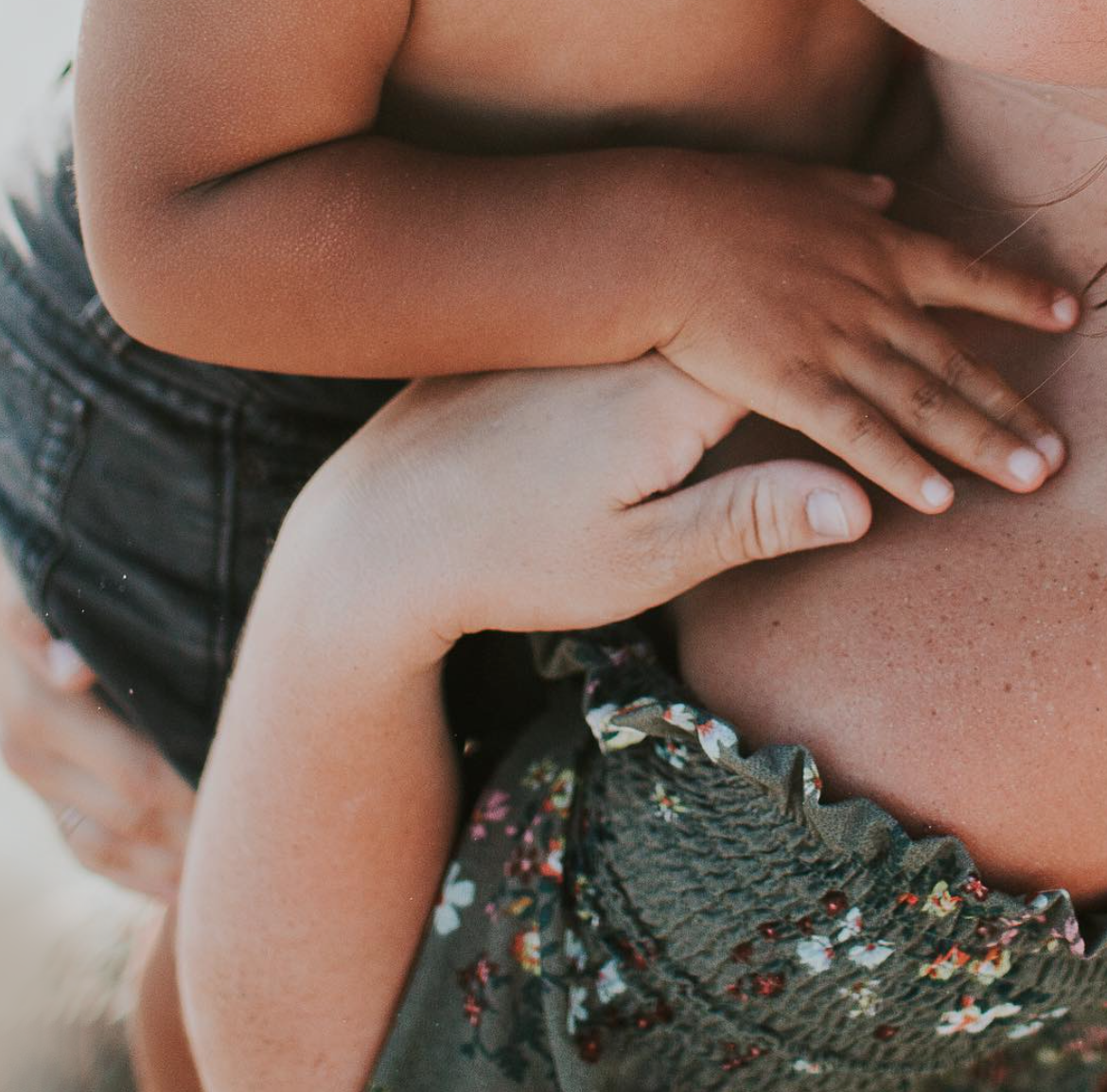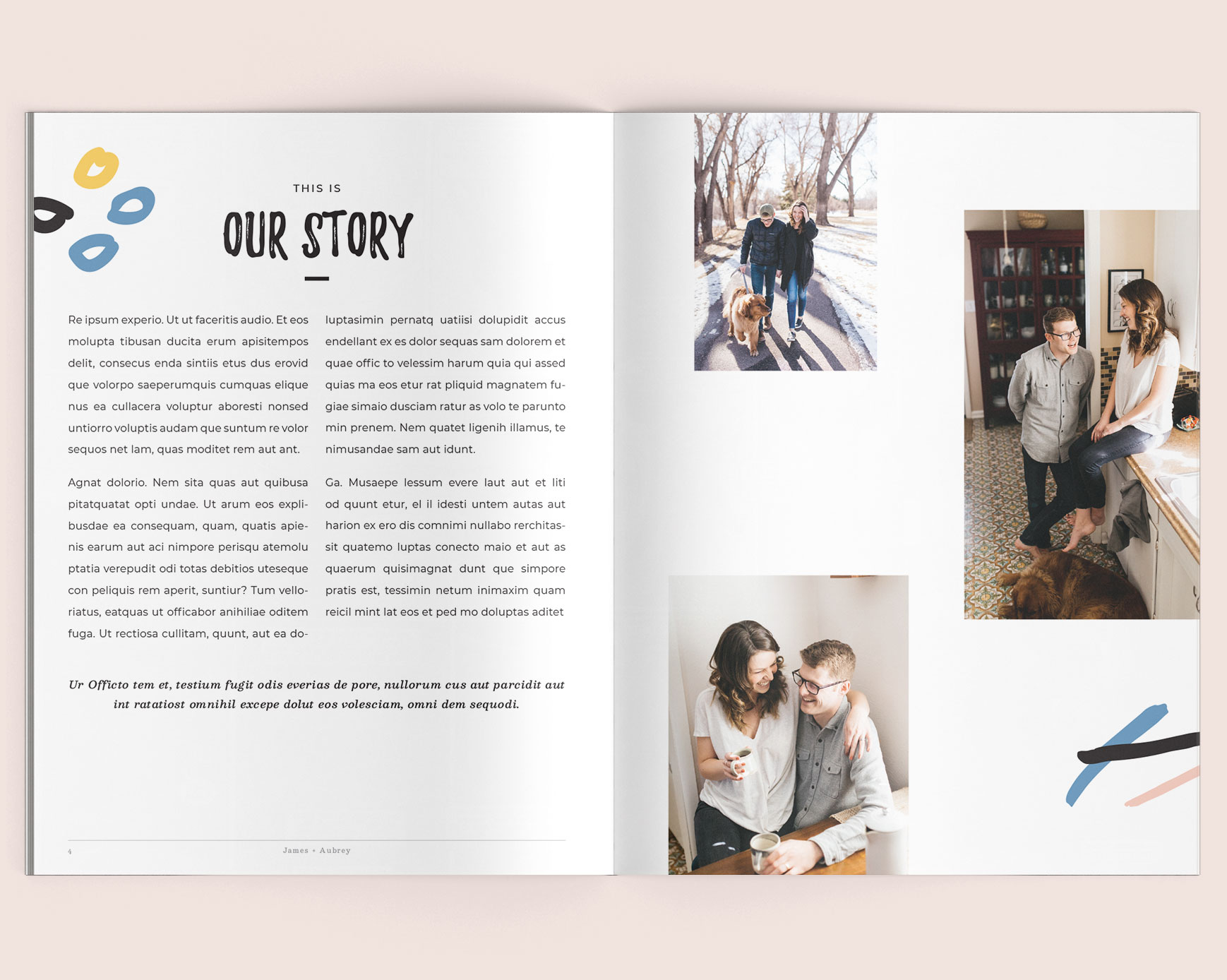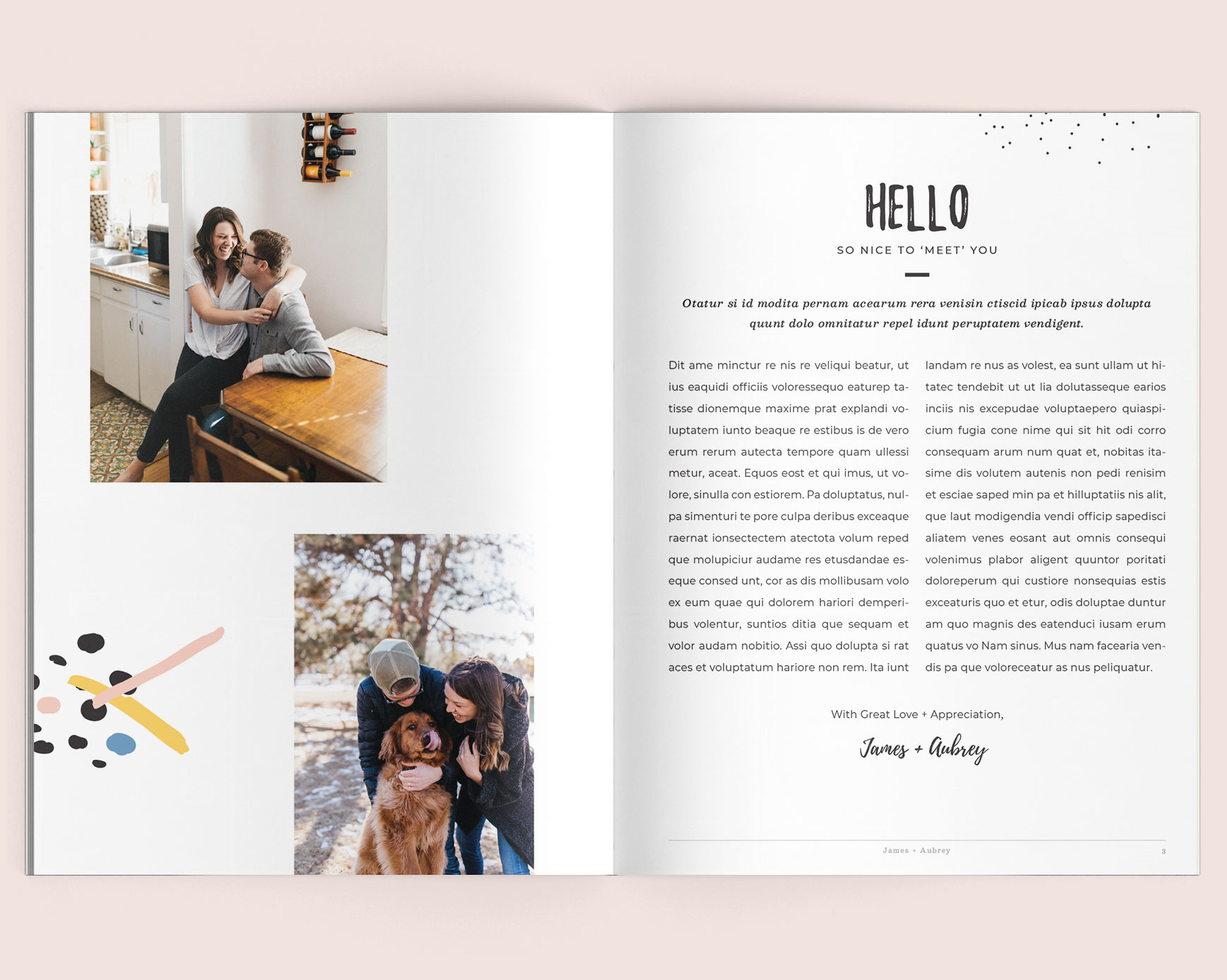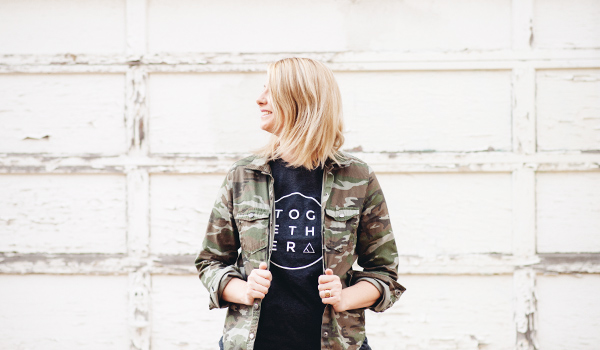In my four years working in the adoption field, I have talked with a multitude of adoptive parents about their open adoptions and how they plan to talk to their children about their origin stories. As a birth mom, I have my own story to tell my child one day, and I must admit, coming face to face with them about my shortcomings and my lowest moments that deeply affect their life is a scary thing to think about. However, it must be done because our children deserve to have the information of the how and why.
So, when is the right time to tell your child their origin story? Dr. Abbie Goldberg, PhD, a child psychologist who conducted a 15-year study on open adoption, wrote about how it’s best to tell adoptees their difficult origin stories throughout their childhood, at developmentally appropriate stages. She recommends that it is best that they know their full story, as much as the adoptive parents know or have access to, by the time they are an adolescent. This may sound simpler when your child is a baby or toddler, as adolescence is far off from your current reality. However, that day your child becomes a teenager will sneak up on you – and it’s important to at least have a basic outline of a plan early on. It’s very possible that they start asking questions about their adoption well before adolescence, and that’s perfectly okay if you do.
It’s important to be prepared for the timing of the conversation, but also just as critical is how you tell them. Some stories are pretty straightforward, some parents may not have much information about their child’s story, and many stories are not pretty. If we have spent our entire parenting experience telling them an ultra-sugar-coated story that strays far from reality, the moment of truth has potential to be a devastating shock. Some adoptees’ origin stories are heartbreaking, traumatic, or even frightening for anyone to hear, let alone the actual child who originated this way. For the messier origin stories, do you adhere to the general rule of telling them during adolescence? How do you even begin to break the story into bite-sized, developmentally appropriate pieces for the child to understand at different ages?
For this dilemma, I thought I would call up one of my very best friends, Tony. Tony is an adoptee, born in 1990, originally from New Jersey, and grew up mostly in Northern Indiana. He grew up in a family with three older siblings who were his parents’ biological children, and he was the oldest of five adopted siblings. He was placed in a foster home a few days after his very traumatic birth, and officially adopted at age 2. His birth mom was very young when she gave birth to him. While I will not reveal the delicate details of Tony’s birth, it is truly amazing that my best friend is here today. I interviewed Tony about how his parents told him his origin story, and while it is just one interview with one adoptee, I truly believe his words are wisdom and his story is so valuable.

How did your parents tell you your origin story?
I was probably in fourth or fifth grade when they told me about my birth mom. I always knew I was adopted, since I am black, and my parents are white. I have a baby book and my mom also had pictures of my birth mom in that. They always told me that she was a really good person and she did what she felt was best for me. They showed me pictures of her, told stories of her, and before they officially adopted me, they took me to her high school basketball games. I am pretty sure she was in my life for the first two or three years. Every couple of months when I was very young, she came to see me, and it was supervised by the State of New Jersey.
When did they tell you the detailed story of your birth and first days?
Junior year of high school. I was 16. When they shared it with me, it wasn’t a joint decision – my dad just opened his mouth. I was taking U.S. History class and we had to bring in a dish that represented our family. I came home from work late one night and asked my dad to tell me more about my family, so that I could bring in a dish. He just came out and said that he thought it was the right time to tell me the real story. I didn’t sleep a wink that night. My mom was out of town at the time, and when she found out, she was very angry that my dad told me, because they had previously agreed that they would tell me when I turned 18.
What did you need from that situation that was different from what you actually received? What could your dad have done differently?
I think it was done in a very nonchalant way; it was just matter of fact. It was 10:00pm on a school night and I just got home from work. I didn’t know how to deal with it. That was the first time in my life that I had to deal with something that was that important and I didn’t have any support; no one I could really go to. Then I found out that everyone in my family had known my origin story, except for me and my younger siblings. I talked to friends about it at school the next day, but I don’t think they even believed me at first.
Do you think the health issues that you experience now in adulthood have been affected by both your origin story, as well as how you were told?
Yes. I am 29 now and having health problems. I think everything is intertwined. I think it has affected me in ways that I don’t even fully understand yet. But also, I have no idea where I am getting these problems from. It’s very important for adoptees to know where and who they came from, even if it’s just for simple health records. It would help me so much.
If your parents would have told you earlier, do you think it would have been better or worse?
Because of the nature of my story, I think if my parents told me at a younger age it would’ve been way more traumatic than what it was. I didn’t know how to deal with it at all. I can’t even count how many nights I laid in bed awake. When my parents had the idea of waiting until I was 18, they were probably hoping that by then I would have the mental capacity to cope.
What had a bigger impact in your coping, the way you were told, or the age you were when your dad told you?
The way that they told me was a bigger factor than how old I was. If it was more of a situation where they sat down with me and answered questions, I would have handled it a lot better. I basically just took a shower afterwards and went to bed. At 16, I think I was mature enough to handle it, it was just not the right setting for it.
Did you feel any sense of betrayal when you found out the truth?
They never lied to me, they just held back those details. But then again, I grew up thinking I was just born in the hospital, but then I found out I wasn’t. Maybe not betrayal, I was just sad and very confused. After they told me that, that is when I started finding out a lot more information about her that I never knew before.
Do you feel that it’s important for adoptive parents to share the adoptees’ origin stories with them?
They do need to tell them. Everyone has a right to know where they came from… point blank period! Some conversations that are more delicate need to be held differently.
How has your traumatic origin story affected the way you feel about yourself and your life?
I feel like I have the weight of the world on my shoulders every day, because I shouldn’t be here. So now that I am here, I feel this pressure that I have to do something great. Growing up in a Christian home affected me too, because everyone is calling you a miracle baby, saying “God has a purpose for you, you should be thankful.” I’m like, OK I get it. Sometimes I am just trying my best to make it through, and I can’t do more than that. It’s just hard.
You have had some communication with your birth mom in adulthood. What does she tell you about your origin story?
My birth mom won’t tell me anything. I have asked her multiple times, and she always shuts me down immediately. Just nothing. I am not mad at her; I have gotten over that. It’s the “what if” – it sucks to question everything.
You have four younger siblings who were also adopted through foster care. In your mind, how did your origin story stack up to theirs, and how did that affect your family’s dynamic?
My other adopted siblings all had pretty normal births. All of my siblings to this day have relationships with their birth parents, except for me. They may not be best friends, but they all have decent relationships with both their birth parents and blood siblings. So, I have always felt like there’s me, and then there’s them.
You then were able to have communication with your half-brother. How important is the role of a bio-sibling to an adoptee?
I don’t care what anybody says, that blood means something. I went almost 23 years without knowing anyone I shared the same blood with. When we started communicating, it just felt good. The siblings that adoptees have in their adoptive families will always be their brothers and sisters, but they will also want to know their blood siblings. Eventually, it will backfire hard if parents try to keep away siblings. It’s something that’s meant to happen.
What is your advice for an adoptive parent who is struggling with the thought and the weight of telling their child their origin story?
Get over yourself. It’s not about you. It’s about your kid. They have a right to know what happened and where they came from. The story could be as bad as it gets, but they have to put trust in their child that they can handle it.
What is your advice for an adoptive parent who messed up telling their child their origin story, and maybe didn’t do it in the best manner?
In my experience, my dad apologized to me. I wear my emotions on my sleeve, and they noticed I was having a hard time, so they approached me. Both of my parents sat down with me and went through the story in more detail. They asked me if I needed help, answered my questions, and asked if I needed someone to talk to. At that point, everyone in my life came around and offered support. If the child needs more than that, help them find a psychiatrist or a therapist, or whatever they need. I wish I would’ve actually done that because I feel like I could have forgone a lot of issues I had, that I had to deal with alone. I dealt with it the best way I knew how at the time.
As stated in the beginning of this article, Tony is just one adoptee. His story is not intended to negate any professional advice, but instead, to show adoptive parents how important and precious an adoptee’s origin story truly is. It is a great responsibility that adoptive parents carry, to tell their children where they came from. It’s normal to be nervous and scared to tell your child how they came into this world and into your family, but they need and deserve to know.

Kelsey Vander Vliet Ranyard is a birth mother in an open adoption and a strong advocate for safe, ethical, child-centered adoptions. She has spent the past several years working in the adoption field – both as a paralegal on the west coast and in adoption agencies in the midwest and southeast. She resides in North Carolina with her husband and daughter. You can find more of Kelsey’s powerful work over at @fromanothermotha and @twistedsisterspodcast











